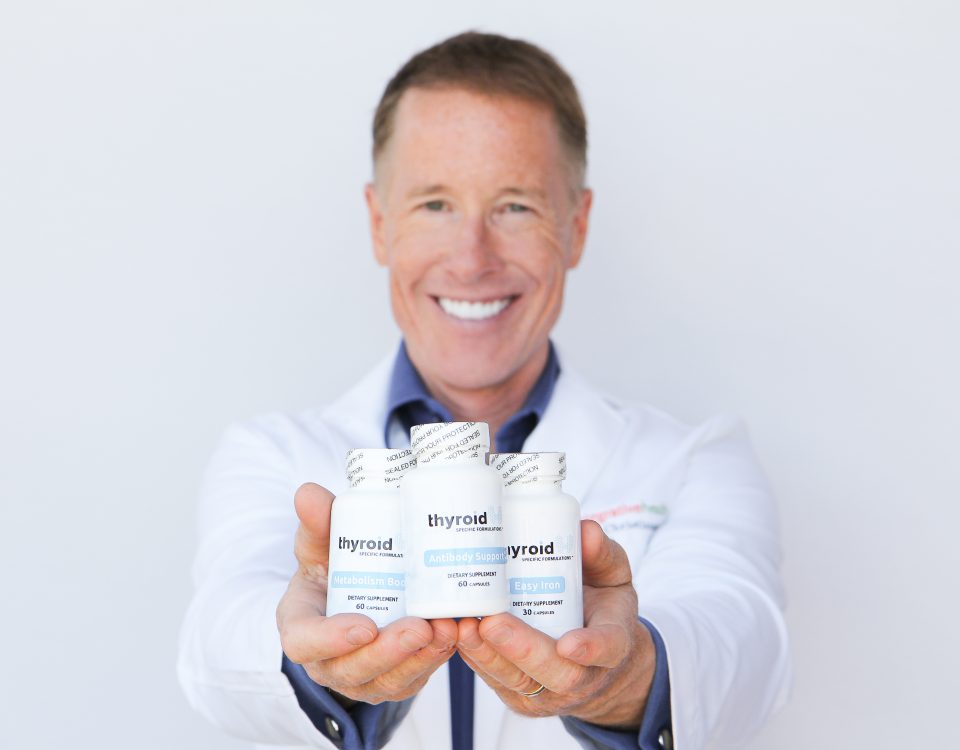Is Epstein-Barr virus the cause behind your thyroid issues? If you have been wondering how you got thyroid disease in the first place, why your antibodies are staying so high and why do you get sick so easily, you absolutely need to consider it. Once we know more about Epstein-Barr virus and Hashimoto’s, we can find the solution.
- Have any questions?
- 480-767-9018
- support@in-goodhealth.com
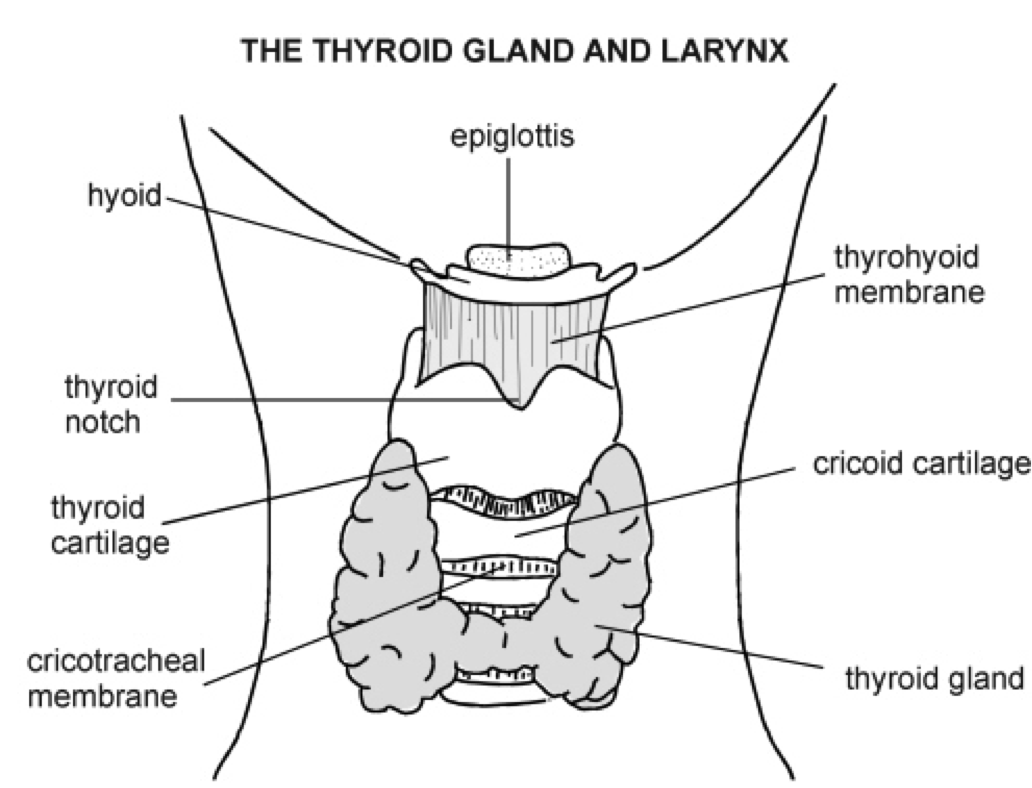
Testing Your Thyroid: The Definitive Guide to Thyroid Lab Tests and Optimal Ranges
February 20, 2017
Do you need medications for adrenal fatigue?
March 28, 2017
Testing Your Thyroid: The Definitive Guide to Thyroid Lab Tests and Optimal Ranges
February 20, 2017
Do you need medications for adrenal fatigue?
March 28, 2017Understanding EBV
How Common is it?
A lot of people wonder if Epstein-Barr virus (EBV) is the hidden cause – or the “smoking gun” – for Hashimoto’s disease – you might even be wondering it for yourself. So, what is EBV and how does EBV relate to Hashimoto’s?
It’s otherwise known as human herpesvirus 4, and it is a member of the herpes virus family.
While it might be related to the same viruses that cause cold sores and genital herpes, the two are not related. When it comes to Hashimoto’s disease, though, we can definitely see a relation between EBV and our thyroid.
How Do I Get it?
The way that EBV gets around is mostly through bodily fluids, especially saliva. While we might see EVB spread during sexual contact, blood transfusions or organ transplants, today we will focus on the more mundane places where we can find it.
How Common is it?
Given everything we previously mentioned, it’s easy to see why EBV is so common! 95% of adults have positive antibodies – suggesting that they were infected at some point in time. Because of this, EBV is obviously something that we are going to encounter at some point of our lives.
How Can You Get EBV?
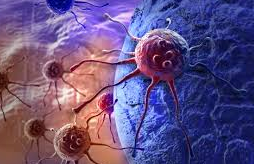
EBV is spread by using “infected” objects, like toothbrushes or drinking glasses, that someone who has EBV has recently used. As long as the object remains moist, it can remain infected.
The worst part about EBV, the primary virus, is that you can spread the virus for weeks without even knowing that you have it. The virus gets into your body, and stays in a latent (inactive) state. You can potentially spread this virus to others, no matter how much time has gone by since your initial infection, if the virus reactivates.
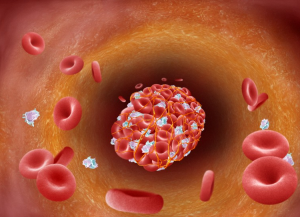
How Common is it?
Given everything we previously mentioned, it’s easy to see why EBV is so common! 95% of adults have positive antibodies – suggesting that they were infected at some point in time. Because of this, EBV is obviously something that we are going to encounter at some point of our lives.
How Can You Get EBV?

You can have EBV at just about any point in your life. In fact, if you get it as a child it is going to look just like you have a cold or the flu. The symptoms are classic, and include:
- Fatigue
- Fever
- Inflamed Throat
- Swollen lymph nodes in the neck
- Enlarged Spleen
- Swollen Liver
- Rash
These symptoms can last 2 – 4 weeks, and at times can be quite debilitating. This goes back to the commonality of EBV, though. Because of the symptoms, it is easy to write it off as a cold – because it feels like one.
Should I be Worried About EBV Reactivating?
It is possible (1). Research has shown that EBV reactivation can be caused by either immunosuppression, such as stress or adrenal imbalances, certain cytokines or steroid hormones like cortisol/hydrocortisone.
What are the Dangers?
EBV is not without a certain host of dangers, which makes it very important to consider and combat (2). Those who have been infected with EBV can be at risk of developing Burkitt lymphoma, Hodgkin disease and nasopharyngeal or stomach cancer.
It was actually thought, for a period of time, that EBV was the cause of chronic fatigue immune dysfunction syndrome (CFIDS). Some with CFIDS likely have it from EBV, but not everyone can attribute it to this virus.
When we think about EBV, we need to think long-term. Treatment is important because it can help combat cancers which we might be putting ourselves at risk for down the road.
In Conclusion: EBV is common amongst the general population, easily spread and can have some real consequences if it goes untreated. How related to our thyroid is it, though? That’s what we are going to find out next.
EBV and Hashimoto’s

The most important thing that we want to talk about today is the connection between Epstein-Barr virus and Hashimoto’s disease. It all comes down to the idea of autoimmunity. Studies have shown that EBV and autoimmunity go hand in hand (3) – one is a trigger for the other.
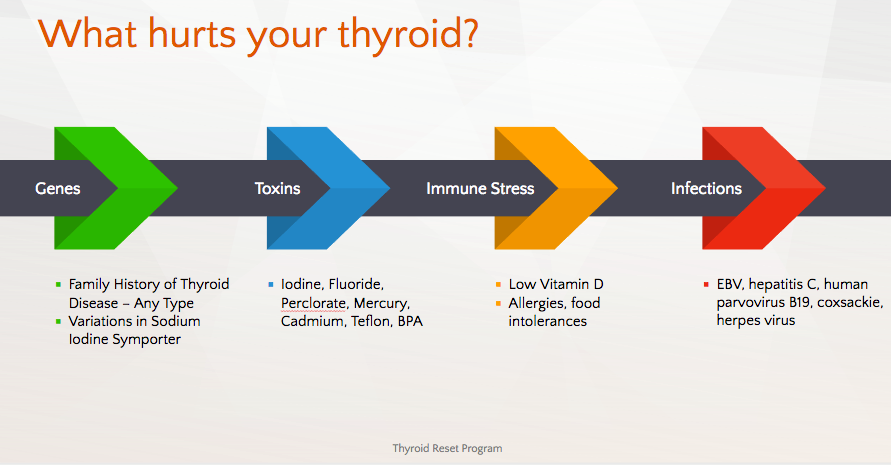
Hashimoto’s is truly a perfect storm whereby you get this disease, it consists of:
- Your genes make you vulnerable
- Environmental toxins making their way into your body
- Some nutritional abnormalities
- Stress on your immune system
When you bring all of that together, what do you have? Hashimoto’s disease! There have actually been studies directly comparing the effects of EBV to autoimmune thyroid diseases, too.
One in particular saw that viral activity found EBV in those with Hashimoto’s (80.7%) and Graves (62.5%), but in none of the other control samples (4).
For many, EBV is that trigger which throws your body into a state where Hashimoto’s becomes all the more probable. It compromises your immune system, and adds to that perfect storm that I had previously outlined.
Key Insight: Epstein-Barr virus and your thyroid share a very tenuous relationship. EBV can be a key trigger of those with Hashimoto’s, but it is by no means the only reason. There are other ways that you can harm your immune system, and cause Hashimoto’s to take effect.
Hashimoto’s is truly a perfect storm whereby you get this disease, it consists of:
- Your genes make you vulnerable
- Environmental toxins making their way into your body
- Some nutritional abnormalities
- Stress on your immune system
When you bring all of that together, what do you have? Hashimoto’s disease! There have actually been studies directly comparing the effects of EBV to autoimmune thyroid diseases, too. One in particular saw that viral activity found EBV in those with Hashimoto’s (80.7%) and Graves (62.5%), but in none of the other control samples (5).
For many, EBV is that trigger which throws your body into a state where Hashimoto’s becomes all the more probable. It compromises your immune system, and adds to that perfect storm that I had previously outlined.
How do You Test EBV?
At this point, you might be worried that you have EBV – and that it might be attacking your thyroid and hurting your body. Not to fear, as there are plenty of tests to help you figure out if this virus is present in your body.
As always, it is better to test than guess. The more common tests for EBV are called IgG capsid tests. Those simply show whether or not you have had past exposure to the virus.
Remember, though, 95% of us have been exposed to this virus before. If you have a reactive infection, an IgM test is going to turn positive (after lying dormant for a period of time).
There is also:
- Epstein Barr nuclear antigen (EBNA)
This tests may show up if you are having a reactivation of an old infection.
Last, but certainly not least, we have the EBV PCR. This is a quantitative test which counts how many infected particles there are in the system.
How Do I Heal EBV?
The conventional wisdom is that there simply is not a cure. Because so many have had it, most people write it off and do not suggest any form of treatment. This thinking is not the way to go. Instead, we need to focus on the things we can do to combat EBV in our lives.
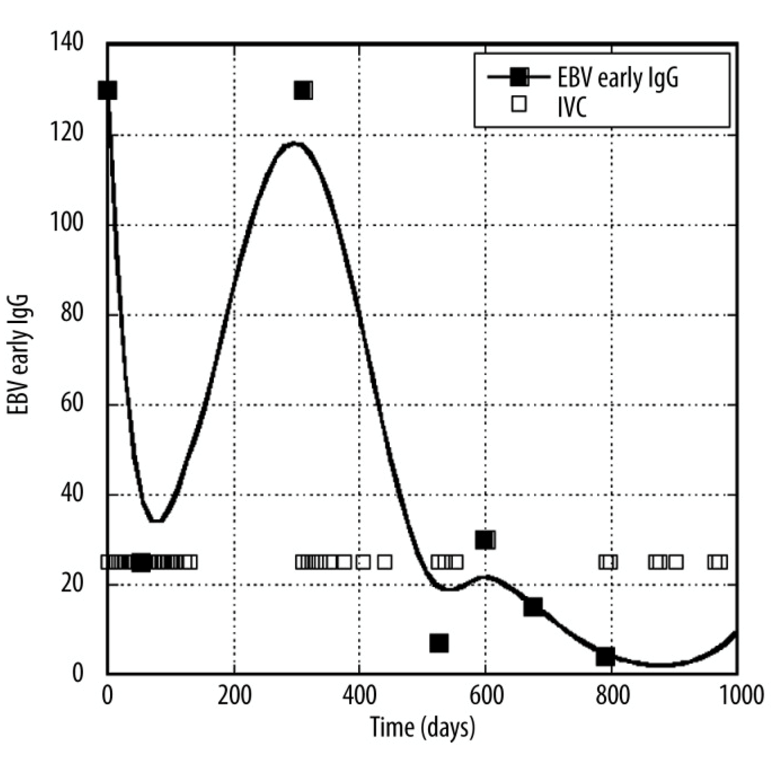
When you have enough of it, vitamin C can do a really good job of keeping EBV from dividing.
The only drawback is that is that you are not going to be able to get enough vitamin C that would cause a change by mouth – this is due to bowel tolerance, where your body simply cannot handle that much vitamin C at once.
That’s why we are going to go with an IV for this suggestion. By injecting vitamin C directly into your bloodstream, there is not going to be effects upon the intestinal tract.
For most people, save for a small amount of the population, it is also completely safe in these high amounts.
It has actually been shown that in high concentrations, vitamin C has been shown to kill EBV. A clinical trial show that with 178 patients, high dose vitamin C (in doses between 7500 to 50000 milligrams) could consistently kill EBV infections (6).
Key Insight: I have seen it in my clinic, and I can say from personal experience that it takes about 4 to 6 weeks of treatment before you are able to see your scores change radically.
Antiviral Medications
There are key antiviral medications which have been used off-label to treat EBV with some success. These include:
- Fosrcanet
- Acyclovir
- Valacyclovir
By and large, these medications are not antibiotics – so they are not damaging the good bacteria in your body.
Supplements
The evidence is lacking, but people have claimed benefits from antiviral supplements, like monolaurin lauricidin, oregano oil and others.
Some have claimed benefit from colloidal silver, although I do not recommend this treatment – due to the risk of argyria, which is rare, but includes a tragic side effect.
Those who have it get a bluish gray discoloration to all of their skin which last long-term.
In Conclusion: From my experience, high concentrations of vitamin C (distributed intravenously) is really helpful for those with EBV. When it comes to antiviral medications, there are benefits. When it comes to supplements, though, the evidence is vague and I would try and stay away from things where tragic side effects might be possible (like colloidal silver, for instance).
EBV and You
EBV testing should definitely be part of the root cause evaluation for all of those who have Hashimoto’s. As I have said before, it is not for all of those who have Hashimoto’s, but it can be a key trigger for those who do.
When it comes to having Hashimoto’s, in general, we really want to unpack the disease and figure out more about our bodies (7). Because of this “perfect storm” I have outlined earlier, it is so important to get more information about your:
- Gene Risks
- Toxins (8)
- Nutrient abnormalities
- Immune Stressors
All of these are so important, and you need to be doing everything you can to understand them.
You and Your Thyroid
Do you feel like you have all of the information you need about your thyroid? Getting to know more about this crucial body part is so important for your overall health. Take my thyroid quiz today, and learn a little bit more about your body.

P.S. Whenever you are ready, here is how I can help you now:
- Schedule a Thyroid Second Opinion with me, Dr. C, Click Here for Details
- Need help to choose supplements? Click ‘Help Me Decide Here'
- Get my top books Here
Dr. Alan Glen Christianson (Dr. C) is a Naturopathic Endocrinologist and the author of The NY Times bestselling Hormone Healing Cookbook, The Metabolism Reset Diet, and The Thyroid Reset Diet.
Dr. C’s gift for figuring out what works has helped hundreds of thousands reverse thyroid disease, heal their adrenals, and lose weight naturally. Learn more about the surprising story that started his quest.





